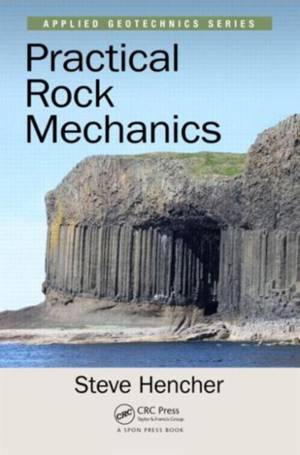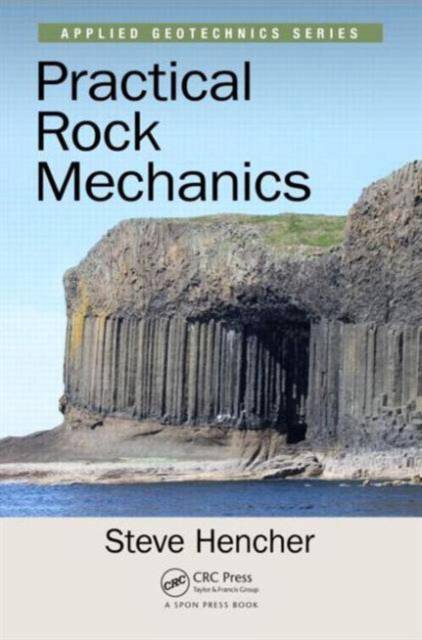
Vous voulez être sûr que vos cadeaux seront sous le sapin de Noël à temps? Nos magasins vous accueillent à bras ouverts. La plupart de nos magasins sont ouverts également les dimanches, vous pouvez vérifier les heures d'ouvertures sur notre site.
- Retrait gratuit dans votre magasin Club
- 7.000.000 titres dans notre catalogue
- Payer en toute sécurité
- Toujours un magasin près de chez vous
Vous voulez être sûr que vos cadeaux seront sous le sapin de Noël à temps? Nos magasins vous accueillent à bras ouverts. La plupart de nos magasins sont ouverts également les dimanches, vous pouvez vérifier les heures d'ouvertures sur notre site.
- Retrait gratuit dans votre magasin Club
- 7.000.0000 titres dans notre catalogue
- Payer en toute sécurité
- Toujours un magasin près de chez vous
160,45 €
+ 320 points
Format
Description
An Ideal Source for Geologists and Others with Little Background in Engineering or Mechanics
Practical Rock Mechanics
provides an introduction for graduate students as well as a reference guide for practicing engineering geologists and geotechnical engineers. The book considers fundamental geological processes that give rise to the nature of rock masses and control their mechanical behavior. Stresses in the earth's crust are discussed and methods of measurement and prediction explained. Ways to investigate, describe, test, and characterize rocks in the laboratory and at project scale are reviewed. The application of rock mechanics principles to the design of engineering structures including tunnels, foundations, and slopes is addressed. The book is illustrated throughout with simple figures and photographs, and important concepts are illustrated by modern case examples. Mathematical equations are kept to the minimum necessary and are explained fully-the book leans towards practice rather than theory.This text:
- Addresses the principles of rock mechanics as it applies to both structural geology and engineering practice
- Demonstrates the importance of and methods of geological characterisation to rock engineering
- Examines the standard methods of rock mechanics testing and measurement as well as interpretation of data in practice
- Explains connections between main parameters both empirically as well as on the basis of scientific theory
- Provides examples of the practice of rock mechanics to major engineering projects
Practical Rock Mechanics
teaches from first principles and aids readers' understanding of the concepts of stress and stress transformation and the practical application of rock mechanics theory. This text can help ensure that ground models and designs are correct, realistic, and produced cost-effectively.Spécifications
Parties prenantes
- Auteur(s) :
- Editeur:
Contenu
- Nombre de pages :
- 378
- Langue:
- Anglais
- Collection :
Caractéristiques
- EAN:
- 9781482217261
- Date de parution :
- 18-09-15
- Format:
- Livre broché
- Format numérique:
- Trade paperback (VS)
- Dimensions :
- 178 mm x 264 mm
- Poids :
- 907 g







